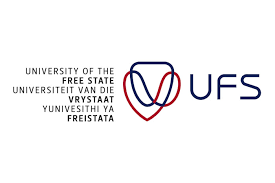University of the Free State: UFS researchers part of major continental study on the evolution of SARS-CoV-2
Researchers from the University of the Free State (UFS) Next Generation Sequencing (UFS-NGS) Unit and Division of Virology/ National Health Laboratory Service (NHLS) were part of a major publication featuring hundreds of authors from Africa who did research on the evolution of SARS-CoV-2.
The scientific publication in the journal Science (impact factor 47.728) featured more than 300 scientists and public health officials from Africa and abroad, who worked together to look into the evolution of SARS-CoV-2, the viral agent causing COVID-19. It was the first collaborative study of this nature conducted in Africa during the COVID-19 global pandemic. The publication became available online on 15 September this year.
According to a press release by the Centre for Epidemic Response and Innovation (CERI) at Stellenbosch University and the KwaZulu-Natal Research Innovation and Sequencing Platform (KRISP) at the University of KwaZulu-Natal (UKZN), this was the largest consortium of African scientists and public health institutions working together to support data-driven COVID-19 response in Africa. This collaboration was led by two labs (CERI and KRISP) and the Network for Genomic Surveillance in South Africa (NGS-SA) consortium, of which the UFS-NGS Unit and Division of Virology are founding members, in close coordination with the Africa CDC, WHO/AFRO and 300 other institutions across the continent.
It is an awesome feeling
Prof Martin Nyaga, Associate Professor in the UFS-NGS Unit and Director of the WHO Collaborating Centre (WHO CC), says the UFS researchers – through the Division of Virology/NHLS (coordinated by Prof Dominique Goedhals and Mr Philip Armand Bester) and also the UFS-NGS Unit (Prof Nyaga, Dr Peter Mwangi, Mr Milton Mogotsi, and Mr Emmanuel Ogunbayo) – were involved as part of the NGS-SA consortium from the study design phase, ethics applications, and throughout the study, processing the SARS-CoV-2 positive samples for whole-genome sequencing, thus generating significant sequence data of the SARS-CoV-2 variants circulating in South Africa.
“It is an awesome feeling to be part of the solution in resolving the COVID-19 pandemic by providing data that would track variants in real time and data used to implement prophylactic solutions, such as vaccine development, against a virus that was a global threat,” says Prof Nyaga.
According to him, the utility of next-generation sequencing technologies in understanding genomics of diseases was clearly demonstrated in this study and will assist in addressing future diseases/pandemics. These genomic studies provide deeper insights regarding diseases, and they will provide timely solutions to solving diseases affecting the Mother Continent.
UFS Free State variants study
Prof Nyaga says their Free State variants study, which was also recently published in the journal Frontiers in Virology, performed analysis of samples from patients who tested positive for SARS-CoV-2 throughout all the COVID-19 waves. “We aimed to determine whether the variants driving the epidemic waves at the national level were also driving the epidemic waves at the local level, in the context of the Free State province. The data further indicates that SARS-CoV-2 variants driving the epidemic waves in the Free State at the local level correlated with the ones driving the epidemic waves at the national level. Findings from this study highlight the importance of continued genomic surveillance and monitoring of the circulating SARS-CoV-2 variants to inform public health efforts and ensure adequate control of the ongoing pandemic.
“Our data has been incorporated into the analyses of the bigger continent-wide collaboration on genomics surveillance to determine how the majority of COVID-19 variants were introduced into Africa, which has now been published in the journal Science,” says Prof Nyaga.
The publication highlights that sustained investment in diagnostics and genomic surveillance in Africa was needed to not only help combat SARS-CoV-2 on the continent, but to establish a platform to address the emerging, re-emerging, endemic infectious disease threats, such as Ebola, HIV/Aids, TB, malaria, and enteric disease-causing viruses.

